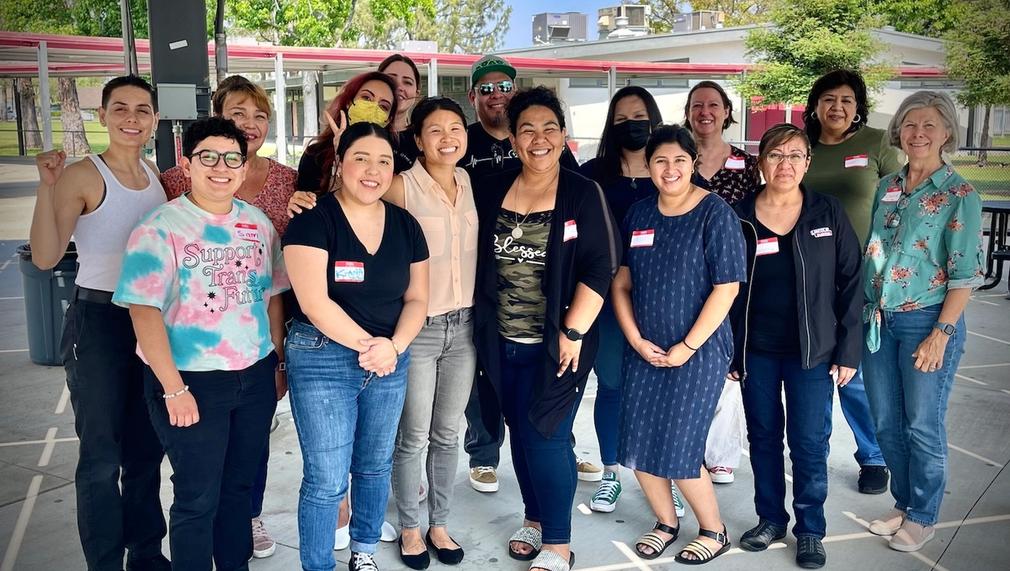Stories of Home: Speaking Out for Housing Justice
LA Forward Institute will harness the power of storytelling to activate people across the San Gabriel Valley to create a housing system that's affordable and stable for everyone. We will host five "Moth"-style storytelling events in public places by recruiting residents to surface their lived experiences around housing and helping them craft compelling stories. The goal is to broaden and deepen the community of supporters (residents, policymakers, media) for protecting tenants, preventing homelessness, and building more affordable housing.

What is the primary issue area that your application will impact?
Housing and Homelessness
In which areas of Los Angeles will you be directly working?
San Gabriel Valley
In what stage of innovation is this project, program, or initiative?
Pilot or new project, program, or initiative
What is your understanding of the issue that you are seeking to address?
Two million people live in the San Gabriel Valley (85% are POC) and the region is experiencing a severe housing crisis. Housing costs and insecurity are skyrocketing. Homelessness is spreading widely. The reason: 1. Not enough housing is being produced. What's being produced is too expensive for working and middle class people. 2. The region's cities grant few legal protections to tenants. To fix this problem, we need to build people-power and shift policy. But currently, there aren't many community groups in the SGV working with people facing housing insecurity. Renters aren't well organized and lack civic influence even in tenant-majority cities. Building power to change this situation is complicated because so many people experience housing struggles as an individual challenge, not a systemic one. And even with the right knowledge, it's difficult to make systemic change unless you're part of a community. Making change requires bringing people together and sharing stories.
Describe the project, program, or initiative this grant will support to address the issue.
LAFI will host 5 story-teling events on the model of "The Moth" focused on people's struggles with housing to raise consciousness about the SGV housing crisis and to forge a community of people focused on the policy changes needed to solve the crisis. These events will take place in community spaces such as cafes and breweries in five different cities. We will recruit 50 people to share their stories at these events by reaching out through the extensive networks that have developed from our SGV housing organizing work. Our staff will lead workshops to help participants build their skills in storytelling and create narratives that connect their personal experiences to systemic problems and policy solutions. These experiences will help our storytellers build confidence, overcome the shame associated with housing insecurity, and publicly confront the failures of our systems. The story-tellers will develop into public leaders. Together these stories will demonstrate the reach and depth of the SGV's housing needs. We'll use social media and press outreach to amplify the stories. Participants will get video of their own stories so they can share out directly. We'll partner with local nonprofits to support recruitment, promotion, and logistics. Several events will have Spanish, Mandarin, or Cantonese interpretation. Collectively, these events will build solidarity and launch a new cohort of leaders into public action, paving the way for housing policy advocacy campaigns.
Describe how Los Angeles County will be different if your work is successful.
We dream of a LA County where every person has access to high-quality, permanently affordable, housing. Our work aims to build a powerful network of SGV residents who work together to transform unjust housing systems. In the short-term, we aim to change the conversation in the SGV about housing, create a new cohort of 50 housing justice leaders who are compelling public speakers who can connect personal struggles to systemic solution; develop relationships among the cohort and with new and existing leaders, and inspire more people to get involved with the movement for housing justice. In the long term, this narrative shift, leadership development, and community building will translate to the people-power to implement policies that protect tenants and increase the number of people living in permanently affordable housing. In the future, we could build on this program's success by growing it within the San Gabriel Valley or bringing this model to other parts of LA County.
What evidence do you have that this project, program, or initiative is or will be successful, and how will you define and measure success?
This is a pilot program which is well-positioned for success due to: 1. LAFI's track record of community engagement/housing advocacy in SGV cities & leadership position in countywide housing coalitions. 2. Our project leaders' experience with "popular education," leadership development, public speaking, and creative performances. We'll track the following metrics to assess the progress and success of this new project and its ultimate impact. Short-Term: # of storytellers we can train in each city to tell their stories and # of story-tellers who stay active after the events # of people who attend each event # of people on the internet who watch videos or read posts about the events # of people who learn about the event from press coverage # of sign-ups for our housing justice action team Long-Term # of pro-housing justice policy advocacy campaigns that launch in connection with these events # of tangible policy wins that can be linked to these events and the campaigns they inspire
Approximately how many people will be impacted by this project, program, or initiative?
Direct Impact: 1,200
Indirect Impact: 320,000